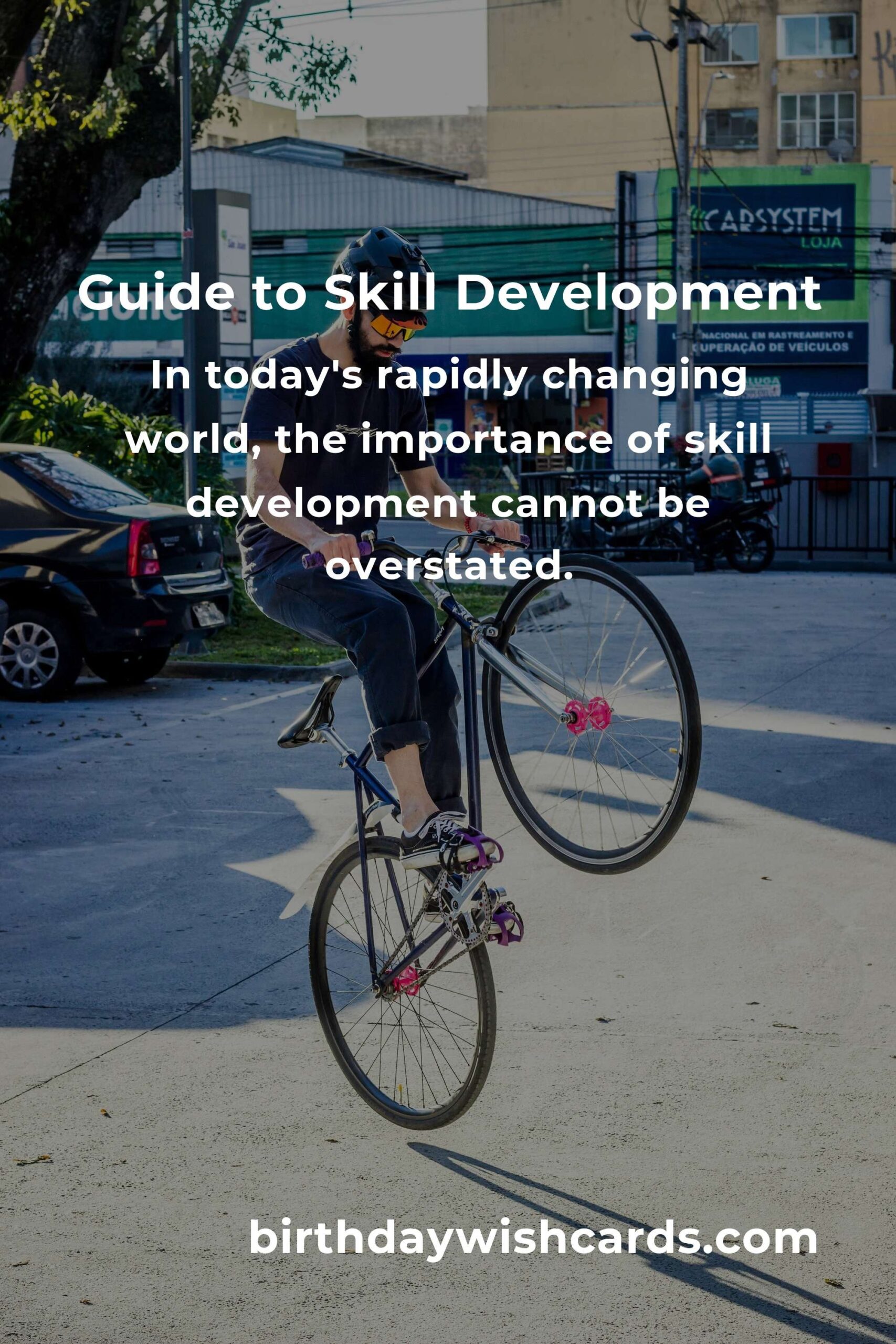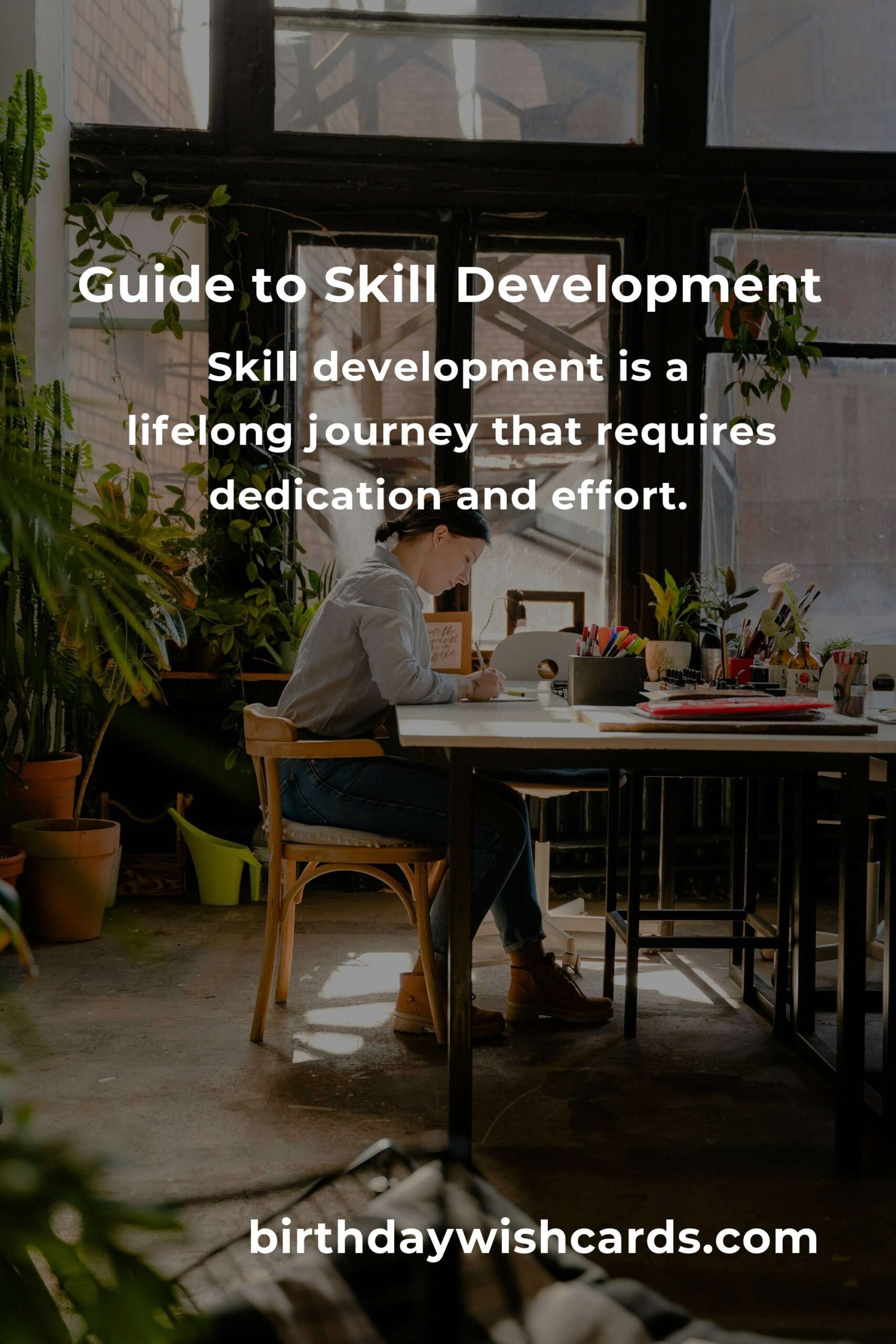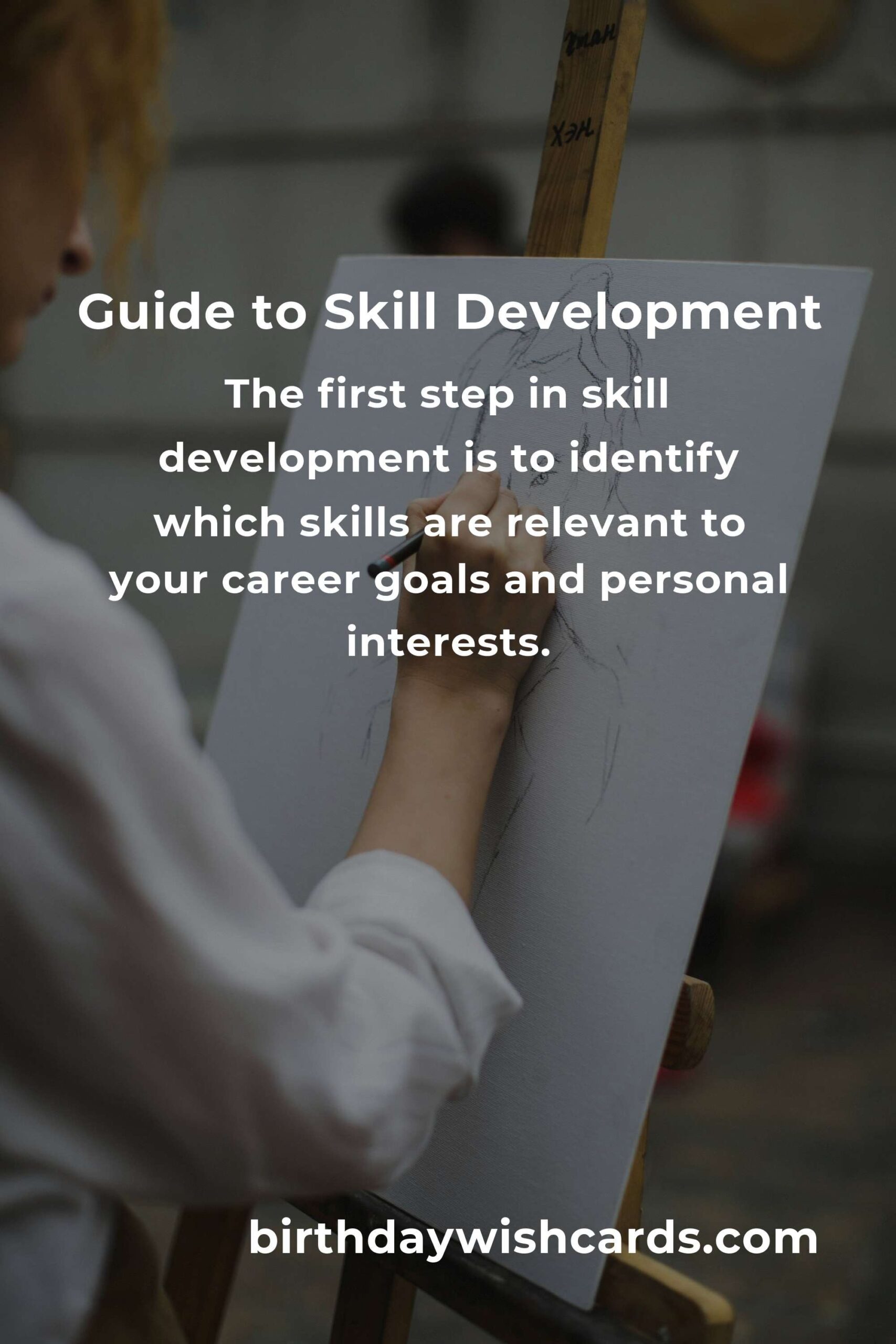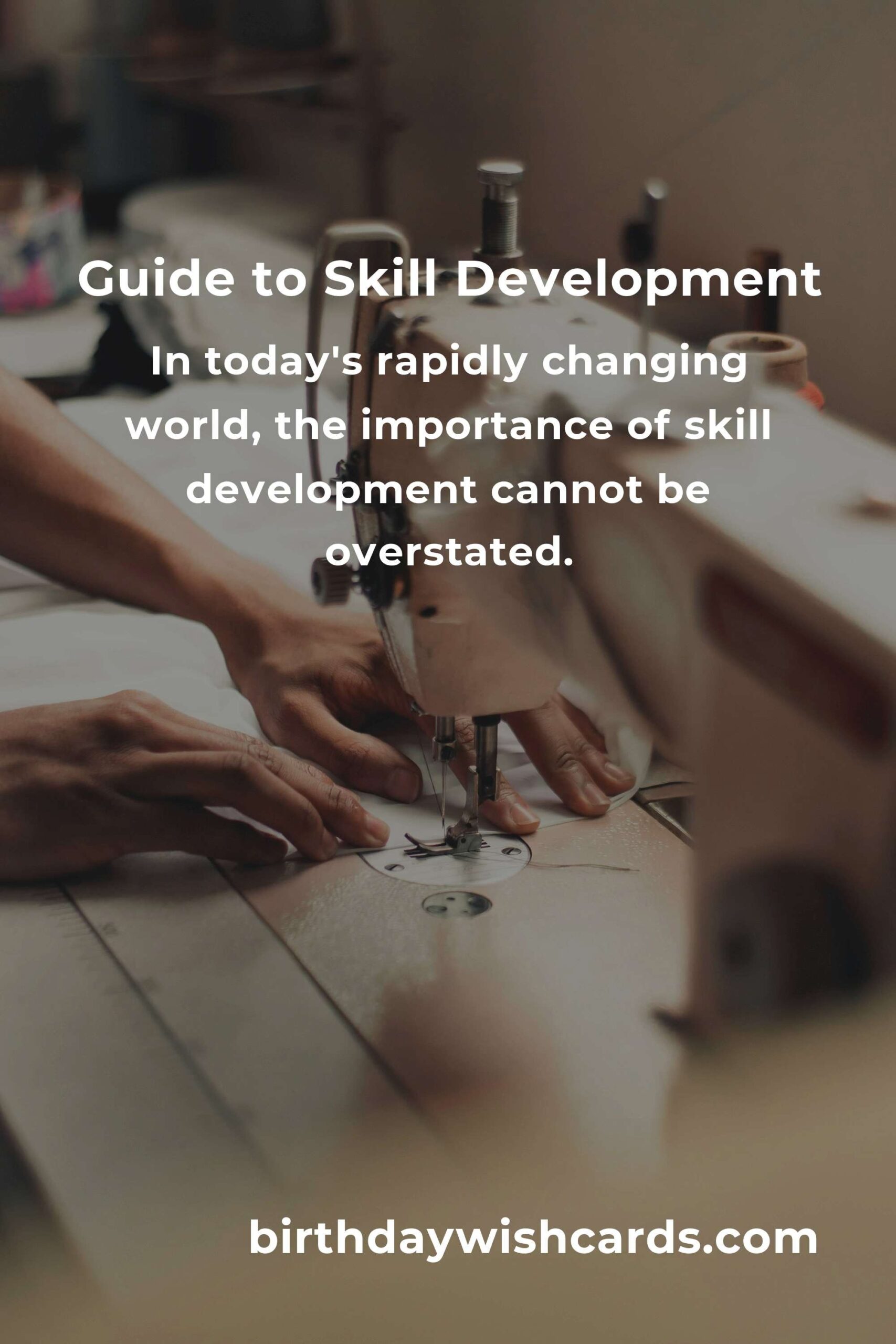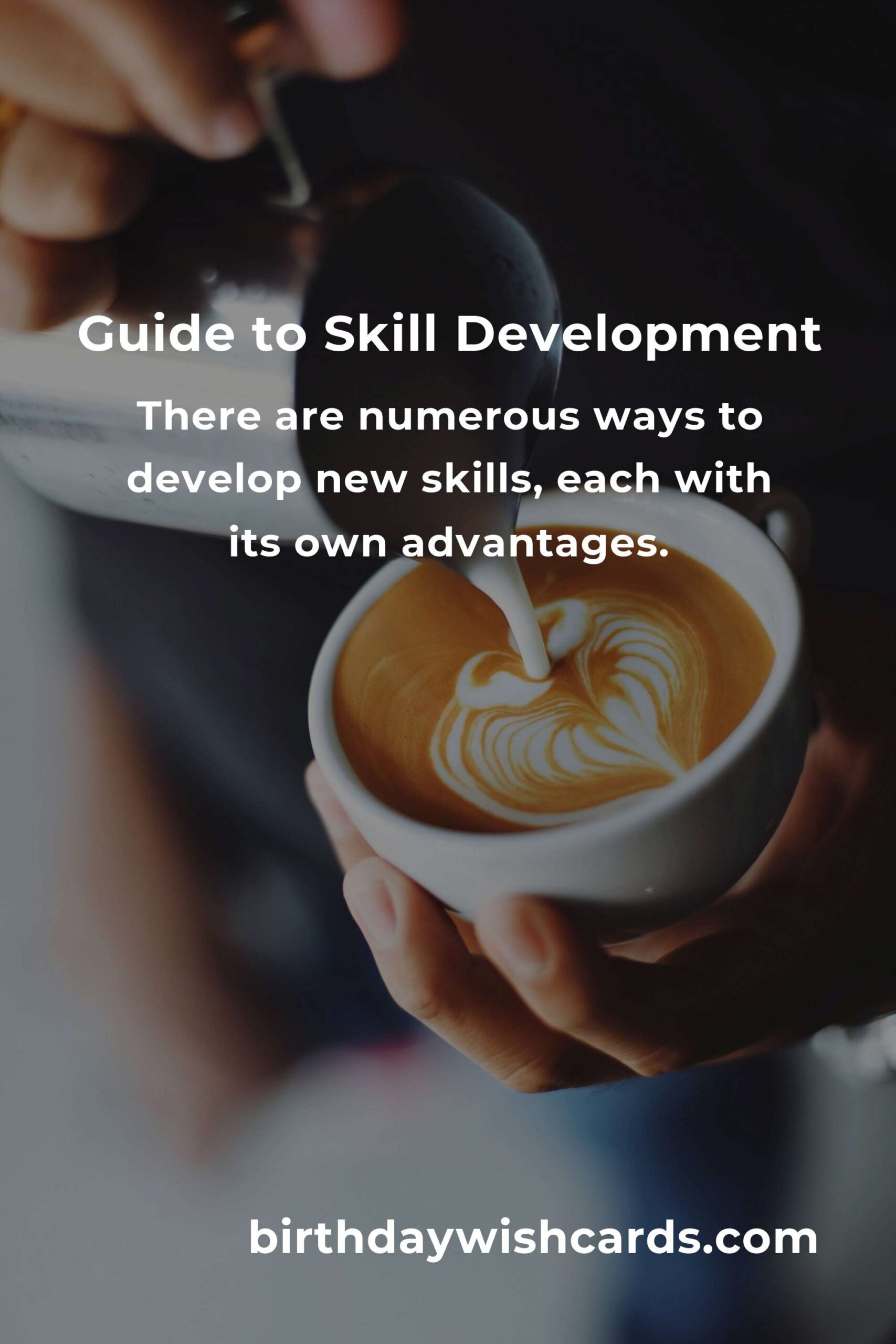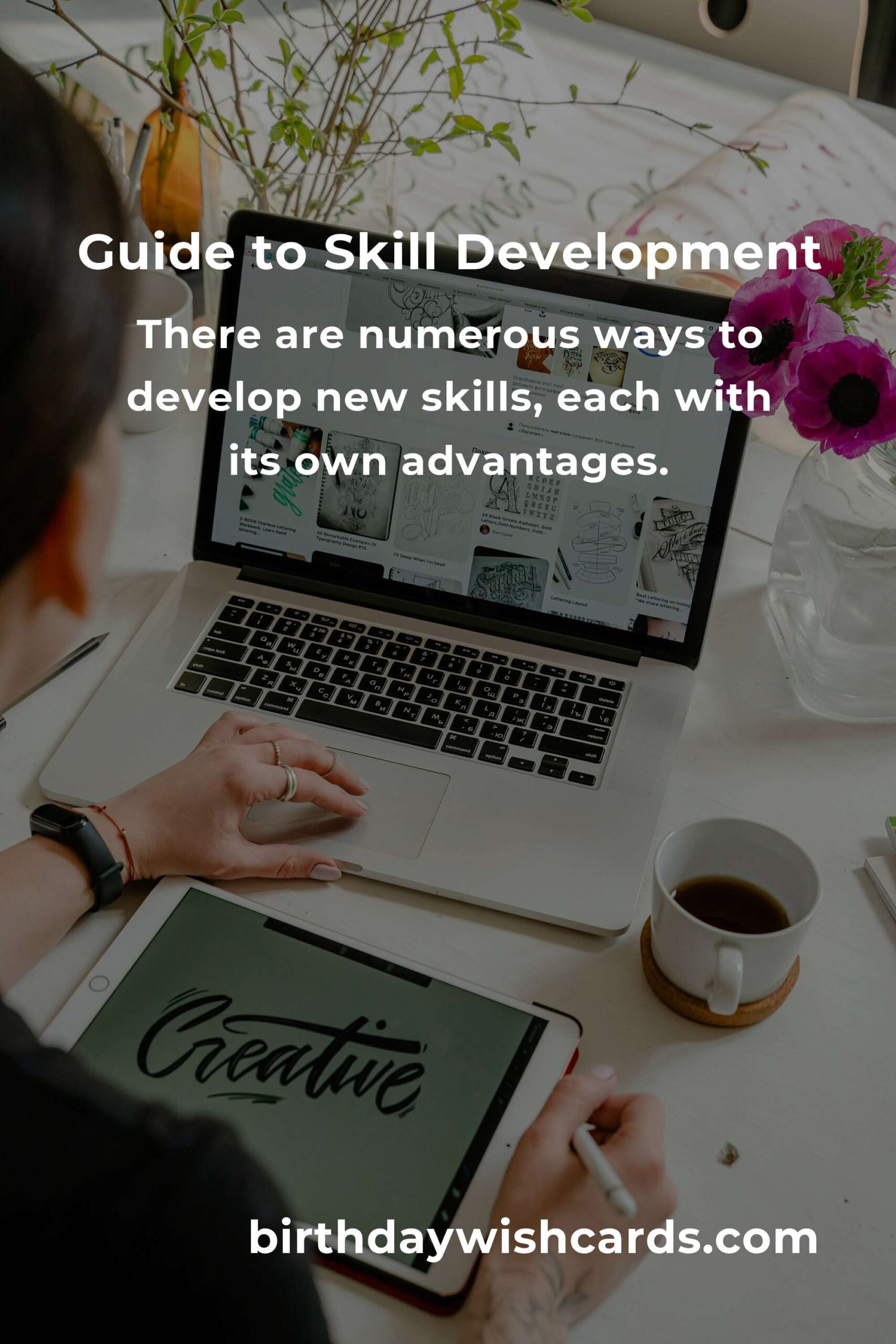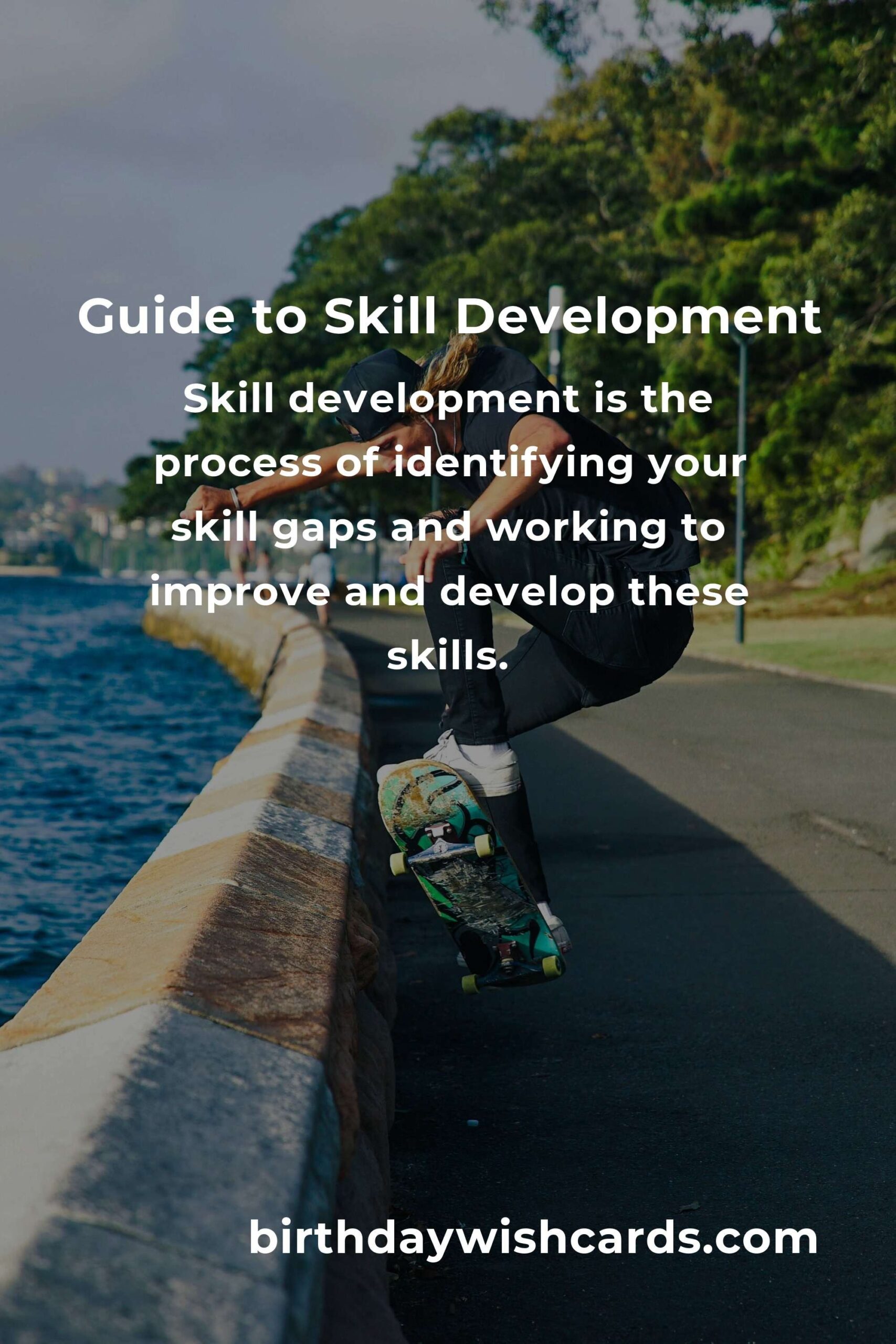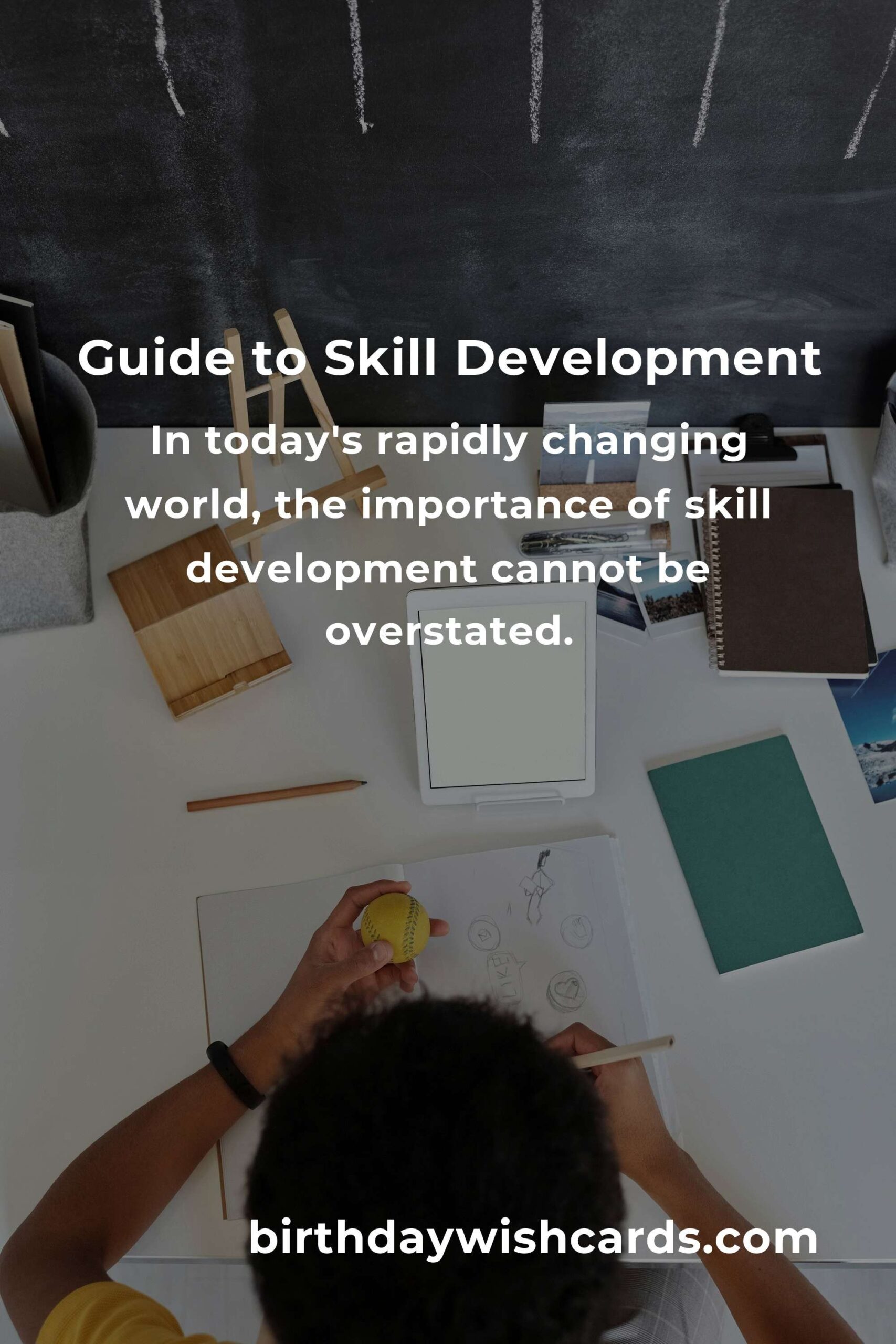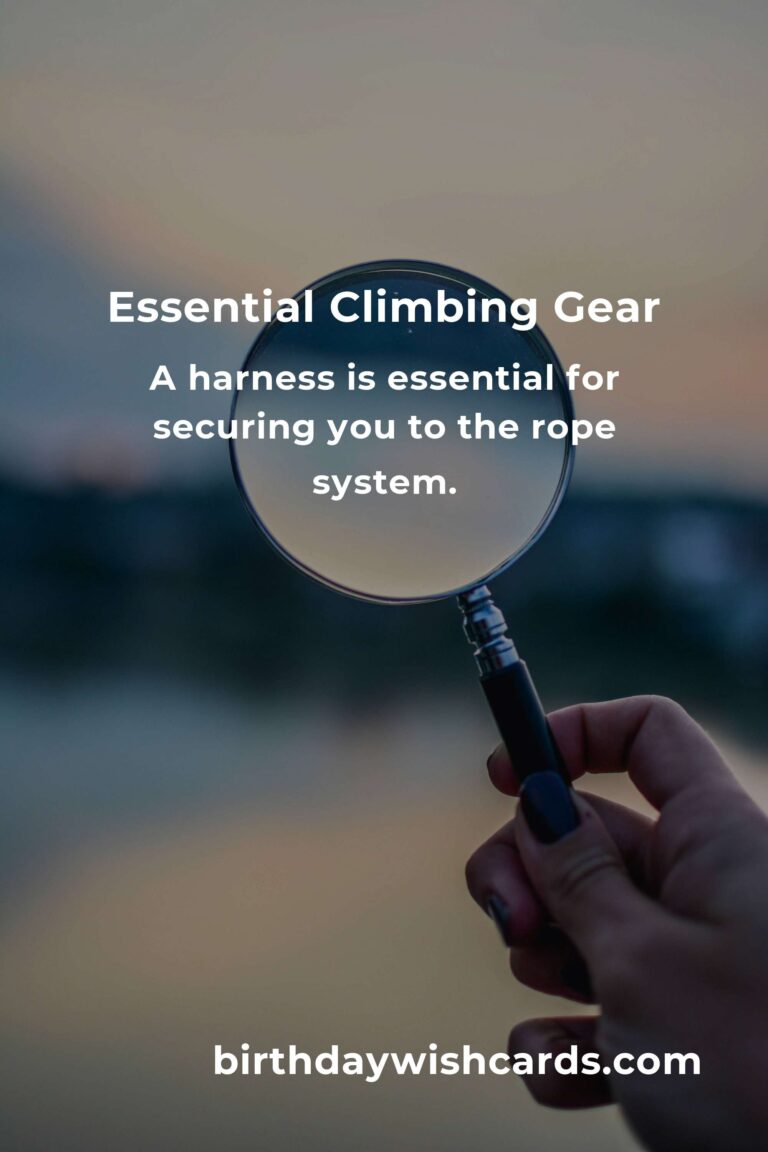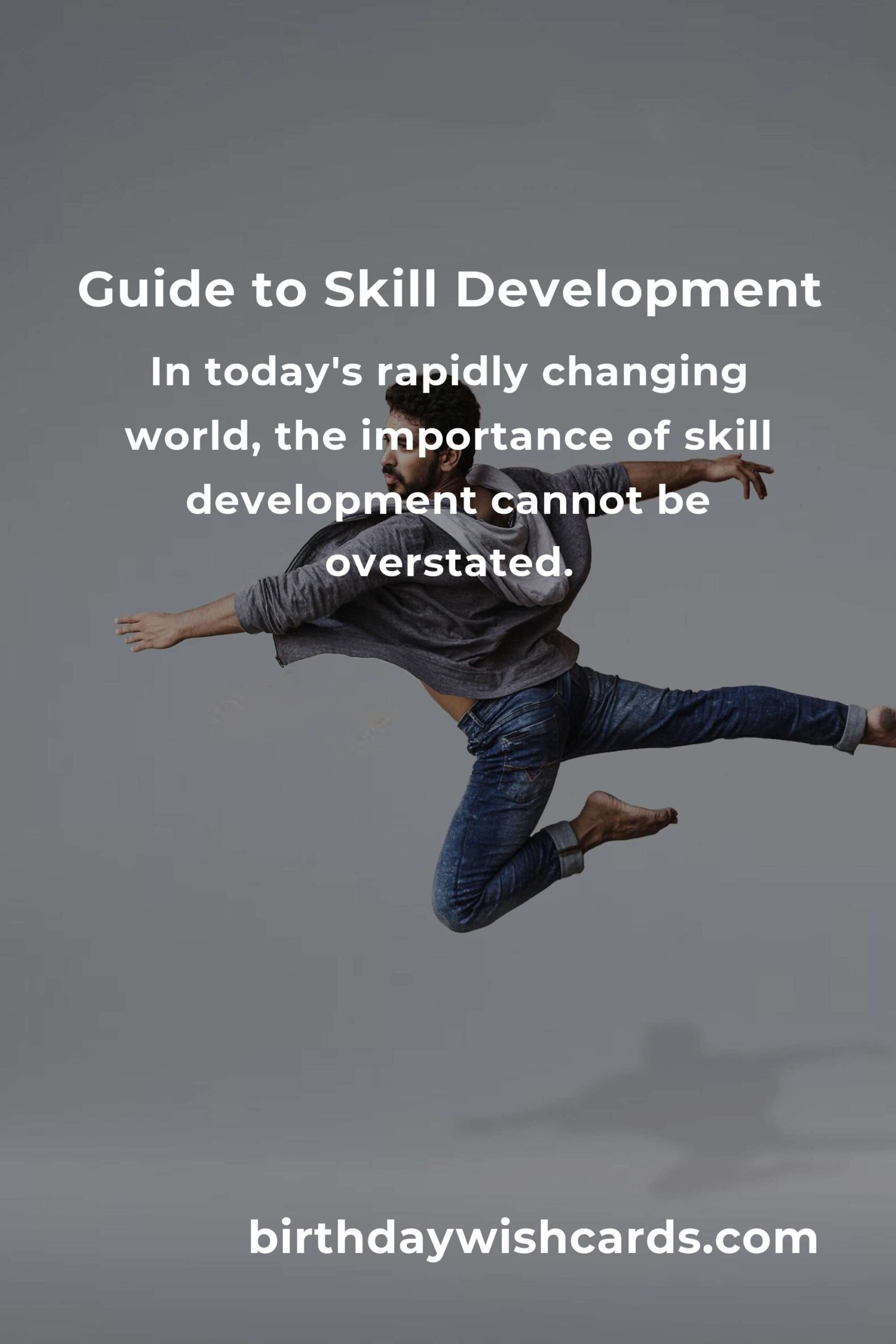
In today’s rapidly changing world, the importance of skill development cannot be overstated. Whether you are starting a new career, looking to advance in your current role, or exploring personal interests, developing new skills is crucial in staying relevant and competitive.
Understanding Skill Development
Skill development is the process of identifying your skill gaps and working to improve and develop these skills. It involves not only acquiring new abilities but also enhancing existing ones. This can be achieved through various methods, including formal education, on-the-job training, self-study, and mentorship.
The Importance of Skill Development
With technology and industries evolving rapidly, individuals must adapt to the changing demands of the job market. Skill development enables professionals to keep up with these changes, ensuring they remain valuable assets to their employers. Moreover, developing new skills can lead to personal growth, increased job satisfaction, and improved confidence.
Identifying Skills to Develop
The first step in skill development is to identify which skills are relevant to your career goals and personal interests. Consider the following:
- Industry trends: Research the skills in demand within your industry.
- Job requirements: Look at job postings for roles you aspire to and note the required skills.
- Personal interests: Consider skills that align with your hobbies or passions.
Methods for Skill Development
There are numerous ways to develop new skills, each with its own advantages. Here are some effective methods:
Formal Education
Pursuing formal education, such as degrees or certifications, can provide a structured learning environment and recognized qualifications. Many institutions offer online courses, making education more accessible.
Online Learning Platforms
Platforms like Coursera, Udemy, and LinkedIn Learning offer a wide range of courses on various subjects. These platforms allow you to learn at your own pace and often provide certificates upon completion.
Workshops and Seminars
Attending workshops and seminars can provide hands-on experience and networking opportunities. They often focus on specific skills and are led by industry experts.
On-the-Job Training
Learning while working is one of the most effective ways to develop new skills. Seek opportunities to take on new responsibilities or projects that challenge you to grow.
Mentorship
Having a mentor can provide guidance and support as you develop your skills. A mentor can offer valuable insights and feedback based on their experience.
Setting Goals for Skill Development
To make the most of your skill development efforts, it’s crucial to set clear and achievable goals. Use the SMART criteria to guide your goal-setting:
- Specific: Clearly define what you want to achieve.
- Measurable: Determine how you will measure progress.
- Achievable: Set realistic goals that challenge you.
- Relevant: Ensure your goals align with your career and personal objectives.
- Time-bound: Set deadlines to keep yourself accountable.
Overcoming Common Challenges
Developing new skills can be challenging, especially when balancing other responsibilities. Here are some tips to overcome common obstacles:
Time Management
Prioritize your tasks and create a schedule that allocates time for skill development. Break your learning into manageable chunks to avoid feeling overwhelmed.
Staying Motivated
Set short-term milestones to celebrate small victories. Keeping track of your progress can help maintain motivation and focus.
Seeking Support
Don’t hesitate to seek support from peers, mentors, or online communities. Sharing experiences and challenges can provide encouragement and new perspectives.
Conclusion
Skill development is a lifelong journey that requires dedication and effort. By identifying your goals, exploring various learning methods, and overcoming challenges, you can successfully develop skills that enhance both your professional and personal life. Remember, the key to successful skill development is persistence and a willingness to embrace new challenges.
In today’s rapidly changing world, the importance of skill development cannot be overstated. Skill development is the process of identifying your skill gaps and working to improve and develop these skills. The first step in skill development is to identify which skills are relevant to your career goals and personal interests. There are numerous ways to develop new skills, each with its own advantages. Skill development is a lifelong journey that requires dedication and effort.
#SkillDevelopment #LifelongLearning #CareerGrowth


